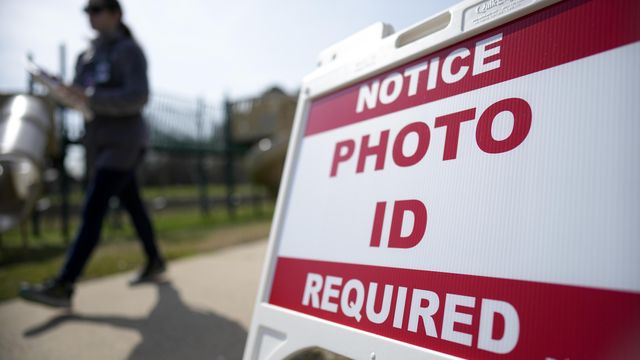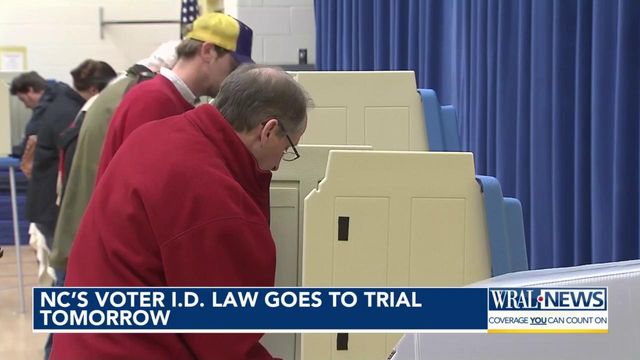Trial for North Carolina's voter ID law begins Monday
North Carolina’s voter identification law is heading to the courtroom on Monday in a case that could affect voter ID laws across the country.
Opponents of the law say it discriminates against Black and Latino voters, while supporters say it will ensure the security of elections in North Carolina going forward.
The law went into effect in August 2023 after the North Carolina Supreme Court reopened a voter ID case earlier in 2023. Previous versions of the law endured years of previous challenges and failed twice.
Conservatives view the law as a major victory saying rules like voter ID are needed to improve voters’ faith that elections aren’t being rigged. The concerns skyrocketed among Republicans in recent years due to former President Donald Trump’s false claims of election fraud.
According to WRAL state government reporter Will Doran, Democrats and voting rights activists believe the law will have unintended consequences.
“Democrats and voting rights activists have sued, saying they will discriminate against minority, college and low-income voters,” Doran said.
Many people who voted during the North Carolina primary elections said the process went smoothly. Election officials rejected some ballots because some voters didn’t have one of the acceptable forms of identification needed to vote.
Doran, however, said it was only a fraction of the people who voted.
David McLennan, a politics and political analyst at Meredith College, said while the law allowed people to vote with little issues, it had unintended consequences.
“The people bringing the case say it’s not just the fact that people, you know, 99.9% of North Carolinians were able to vote using their IDs, but it was the people who chose not to go to the polls at all because they were concerned about voter ID,” McLennan said.
McLennan said defendants will point out that the law offers broad exceptions to voters without an ID.
They also reject claims they intended to discriminate and said the goal of the law is to crack down on voter fraud.
The state has audited election results for years and looked into allegations of voter fraud. Doran said the state found “very little fraud” and even fewer allegations of fraud.
The case has the potential to block the state’s voter ID requirements before the November elections, though an appeal is likely regardless of which way the judge rules.
“This could be the kind of case [where] if the plaintiffs prevail, the law is halted for use in this year’s election,’ McLennan said, adding that defendants would likely appeal the decision.
McLennan believes the case will eventually reach the United States Supreme Court.
The tial begins at 9 a.m. on Monday in Winston-Salem and is expected to last at least 10 days.











